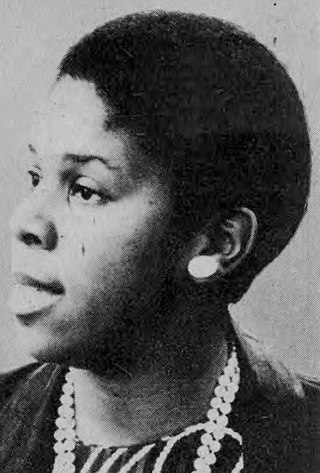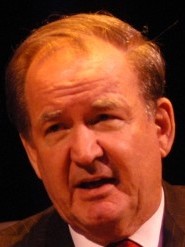History
Original formation
The UCP has it's roots in the Voter Education Project founded by the then 29-year old Jim Clyburn. [1] The party first contested the 1970 elections creating a platform in-line with progressive values, calling for abolition of the draft, granting 18-year-olds the right to vote, state-supported day care and kindergarten for all children, abolishing the death penalty, stricter environmental laws, unions for state employees, living wages for all workers, curbing corporate incentives and retiring the Confederate flag to a museum. [1] The party's chairman was John Roy Harper II, then a law student at the University of South Carolina in Columbia. [1] Harper stated that he founded the party because "There are no black state legislators, no black members of the county councils, no black school board members, no members of city councils. We got no way to go but up." [1] During it's infancy the party gained the support of Clyburn, arguing that the party should avoid contact with the "Negro Democrat" who sought to use back-room deals to subvert the party. [1] During this period Harper also tried to appeal to poor Whites, Indians, and the labor movement who he claimed where unrepresented in the existing system of government. The UCP ran candidates for governor, lieutenant governor, the legislature and county councils in 1970. [1]
In 1972 the party was able to secure a line on the ballot for George McGovern in his campaign against Richard Nixon via fusion voting. [1] The 1972 elections also marked the entry of Black South Carolinian Democrats to the House, largely due to the efforts of the UCP, despite the party electing no stand-alone candidates. [1] However, following the 1972 election, the party would go dormant, seemingly accomplishing it's goal of electing Black legislatures. [1] In 1974, the political scientists Hanes Walton Jr. and William H. Boone cited the UCP up to that point as an example of a successful sub-national African American political party. [2]
1st Refoundation
Due to South Carolina election law, despite the party no longer existing, it retained it's status as a registered political party, and retained a line in the ballot, however, in 1986 new election laws where passed in South Carolina requiring a party to run candidates in at least every other general election, meaning that the party had to run a candidate during in 1988 otherwise it would officially become defunct. [1] That year, the New York based New Alliance Party filed the paperwork to run a candidate for the UCP line, Lenora Filani, for President of the United States. [1] After Filani secured the ballot spot, old UCP veterans emerged to rekindle the party and denounced Filani due her candidacy for the UCP largely being an effort to simply get on as many ballots as possible. [1] The UCP found itself in a lose-lose situation, as Filani was seeking to take over the party, while opposing her would mean the party would lose it's election certification. Filani’s group would go on to change the name of the party to the Patriot Party (PP) and supported Ross Perot in his 1992 presidential campaign for president despite Filani officially being the cannidate. [1]
For his second bid for president in 1996, Perot's newly formed Reform Party also secured ballot access in South Carolina, meaning Perot appeared twice, once for the Reform party, and the other for the PP. [3] [1] The PP would earn Perot 36,913 votes in South Carolina, to the Reform Party's 27,464. [4] However, following the establishment of a state branch of the Reform Party, the Patriot Party fell into disuse and was again abandoned. [1]
2nd Refoundation
The party would again be revived in 2000, this time by Mike Avey, a professor of political science at Lander College who, with some activist friends, quietly filed the necessary paperwork to prevent the party from officially becoming defunct, taking over the party. Their first act was to change the name of the party back to the UCP, and to re-adopt progressive values. [1] Avey stated that he "first saw the party as a way to get Ralph Nader on the ballot for president, but I quickly recognized a restored UCP — a progressive third party with staying power — was more important in the long run." [1] Avey and the UCP where successful in getting Nader a line on the ballot for his 2000 bid for president, earning him 20,279 votes or 1.47% of the electorate. [5] The party's original founder Harper has come out in support of Avey's restored party, applauding his efforts to make a party for Black Americans stating that "The problems and inequities the United Citizens Party identified 30 year ago are still problems today. Sure, there have been a number of black legislators elected, but not enough to make difference without the support of white Democrats, which too rarely happens. The [Democratic] Party gives lip service to the needs of the black community and working people, but it stops there." [1]
The newly reformed party focused it's effort on reviving the practice of fusion voting in the state, as well as building a grassroot progressive movement. [1] The new UCP would quickly be supported by the South Carolina Progressive Voter Coalition, additionally, the president of the South Carolinian AFL-CIO, Donna DeWitt, came out in support of the UCP stating that "if there is no good candidate, we can run our own." [1] At the same time, Willie Legette, a professor of political science at South Carolina State University stated that the UCP was giving a voice to poor Blacks, and claimed that the Democratic party only caters to middle class Blacks. Legette also argued that the UCP's pro-worker message could dismantle racial boundaries in favor of class warfare and could dismantle "segregated" voting districts and patterns. [1]
In the 2002 election for the Second Congressional District in South Carolina, Mark Whittington received 17,189 votes or 10.03% of the total. [6] In presidential election of 2004, the UCP chose to nominate the Socialist Party candidate Walt Brown for president. Brown received 2,124 votes or about 0.1% of the total 1,617,730.
In 2006, the Party endorsed John "JC" Nellums for State House District 79 (Kershaw, Richland), [7] and did not cross-endorse candidates of any other party.
On March 29, 2008, the party endorsed Barack Obama via convention for the 2008 presidential election, [8] but the nomination was not accepted. Obama appeared on the ballot as solely as the candidate of the Democratic Party. [9]
In 2010, the party cross-endorsed former football player Morgan Bruce Reeves for governor, alongside the South Carolina Green Party. Reeves received 0.9% of the vote. On the November 2014 ballot, the party nominated Reeves for Governor and David Edmond for Commissioner of Agriculture. Reeves received 0.5% of the vote.
In 2018 and 2022, Chris Nelums ran as a United Citizens Party candidate for Commissioner of Agriculture. [10] In 2018 Nelums received 118,671 votes, or 8.85% of the vote; in 2022, he received 95,625 votes, or 6.84% of the vote. [11]
For the 2024 United States presidential election, the UCP chose to nominate Cornel West. [12]


















